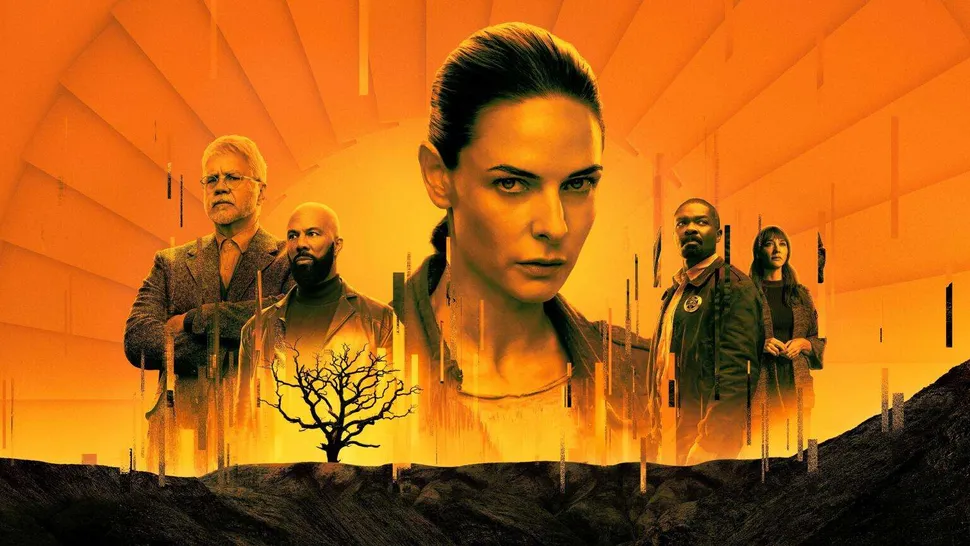“The Walking Dead” is more than just a television series—it’s a cultural landmark. Since its debut in 2010, this post-apocalyptic horror drama has captivated millions worldwide, exploring the human condition against the backdrop of a zombie-infested world. Whether you’re a long-time fan or a newcomer to the series, understanding the depth and impact of The Walking Dead is essential to grasping its place in modern entertainment.
Let’s delve deep into the story behind The Walking Dead, its characters, the world-building, and why it continues to resonate with global audiences.
What is The Walking Dead?
The Walking Dead is a television series based on the comic book series of the same name, created by Robert Kirkman, Tony Moore, and Charlie Adlard. The show revolves around a group of survivors in a world overrun by zombies—or, as the series calls them, “walkers.” These survivors must navigate the ever-present threat of walkers and the dangers posed by other humans as society crumbles.
The show isn’t just about fighting zombies. It’s about survival, moral dilemmas, and the breakdown of civilization. The real heart of the show lies in how people change when the world they know is no longer the same.
The Characters That Define The Walking Dead
One key reason The Walking Dead has been so successful is its rich and diverse cast of characters. Each character brings something unique to the table, and their development over time keeps audiences invested.
- Rick Grimes: The former sheriff’s deputy who becomes the group’s de facto leader. His character arc is central to much of the series, showcasing the moral struggles of leading in a post-apocalyptic world.
- Daryl Dixon: Known for his crossbow and quiet, rugged personality, Daryl has become a fan favorite. He starts as a loner but becomes one of the group’s most loyal members.
- Michonne: Introduced wielding a katana and leading two armless walkers, Michonne is a powerful and complex character who represents strength and vulnerability.
- Carol Peletier: Arguably one of the series’ best character transformations, Carol starts as a meek housewife but evolves into one of the group’s most capable and deadly survivors.
These characters and many others face unimaginable loss and hardship, but their perseverance defines The Walking Dead.
The Themes of Survival and Humanity
At its core, The Walking Dead isn’t about the zombies. It’s about survival and, more importantly, what it means to be human when everything falls apart. The series forces its characters—and the audience—to grapple with tough questions:
- What would you do to survive?
- How do you maintain your humanity while constantly fighting to stay alive?
- Is it possible to rebuild society, or are humans doomed to repeat their past mistakes?
These questions aren’t just hypothetical in The Walking Dead. The series explores them in gritty detail, often showing that the real monsters aren’t the walkers but other people.
World-Building: Creating a Post-Apocalyptic Universe
One of the standout aspects of The Walking Dead is its incredibly detailed world-building. The show paints a vivid picture of a world in collapse, from the desolate landscapes to the dilapidated cities.
- Walker Threat: The walkers in The Walking Dead are more than just background noise. The show explores the science of their existence, how they operate, and why they continue to be a persistent threat.
- Communities: Throughout the series, different survivor groups establish their communities, each with rules and dynamics. From the peaceful Hilltop to the authoritarian Sanctuary, these communities add depth to the post-apocalyptic world and showcase how different people react to societal collapse.
- Resource Management: In a world of scarce resources, the struggle to find food, water, and shelter becomes a central theme. The show highlights the lengths people will go to secure the basics of life, often leading to conflict.
The Evolution of The Walking Dead
Since its debut, The Walking Dead has significantly changed its narrative structure and focus. The early seasons focused more on survival horror, with walkers posing the primary threat. As the series progressed, the focus shifted toward the interpersonal conflicts between different groups of survivors.
- Early Seasons: These seasons are marked by intense walker-related action and the group’s struggle to find a safe place to call home. Critical locations like the prison and Hershel’s farm become iconic settings.
- Middle Seasons: This period introduces some of the series’ most notorious human villains, such as the Governor and Negan. The conflict between Rick’s group and these antagonists provides some of the series’ most gripping moments.
- Later Seasons: The series delves into broader questions about rebuilding civilization, with the group striving to establish sustainable communities. The focus shifts from mere survival to hope for the future.
The Cultural Impact of The Walking Dead
Few television series have had the cultural impact of The Walking Dead. It has spawned multiple spin-offs, including Fear the Walking Dead and The Walking Dead: World Beyond, as well as video games, novels, and an extensive line of merchandise.
The show also redefined the zombie genre for a modern audience. While zombie films and shows existed long before The Walking Dead, the series brought new life (no pun intended) to the genre, blending horror, drama, and emotional storytelling in a way that hadn’t been done before.
- Zombie Popularity: Following The Walking Dead, zombie-related media had a massive resurgence. Movies, TV shows, and video games all took cues from the series, further cementing its place in pop culture history.
- Conventions and Fandoms: The series has fostered a passionate fan base, with conventions like Walker Stalker Con dedicated entirely to the show. Fans gather to meet the actors, discuss episodes, and cosplay as their favorite characters.
Lessons from The Walking Dead
While most of us (hopefully) won’t have to survive a zombie apocalypse, The Walking Dead offers valuable lessons that can be applied to real life:
- Resilience: The show teaches us the importance of resilience in facing hardship. Whether it’s a literal zombie or a symbolic one, life will always throw challenges your way.
- Community: As much as the series is about survival, it’s also about the importance of community. The characters who survive longest are those who form bonds with others and build a support system.
- Hope: Despite the bleak setting, The Walking Dead always emphasizes the importance of hope. Even when things seem hopeless, the characters strive for a better future.
The Future of The Walking Dead
Although the main series concluded in 2022 after eleven seasons, the world of The Walking Dead is far from over. Multiple spin-offs are in development, and the comic book series is still widely read, so the universe continues to expand.
Fans can look forward to exploring new stories in this universe, with familiar characters and new faces alike continuing to navigate the post-apocalyptic landscape.
Table: Key Events in The Walking Dead
SeasonMajor EventImpact on Storyline
1 Rick wakes up from a coma and discovers walkers Establishes the post-apocalyptic setting
2 The group settles at Hershel’s farm and Explores the theme of finding temporary safety
3 The group takes over a prison, Marks the beginning of the group’s attempt to create a stable home
6 Introduction of Negan Introduces a new level of human conflict
8 The All-Out War arc Culminates the conflict between Rick’s group and Negan
11 Rebuilding civilization Shifts the focus toward the future and community-building
Final Thoughts on The Walking Dead
In a television landscape filled with shows that come and go, The Walking Dead has cemented its place as one of the greats. Its unique blend of horror, drama, and emotional depth keeps viewers returning season after season. The show has transcended the zombie genre by focusing on the fear of the walkers and the complexities of human nature.
Whether you’re a seasoned fan or just getting started, there’s always something new to discover in The Walking Dead’s world. The show’s exploration of humanity, survival, and hope makes it a timeless piece of storytelling that will be remembered for years to come.
In conclusion, while The Walking Dead may be about a world overrun by zombies, its true heart lies in the people who inhabit that world. Through their struggles, triumphs, and losses, we’re reminded of what it means to be human—and that’s a message that will never get old.
You may also read





















